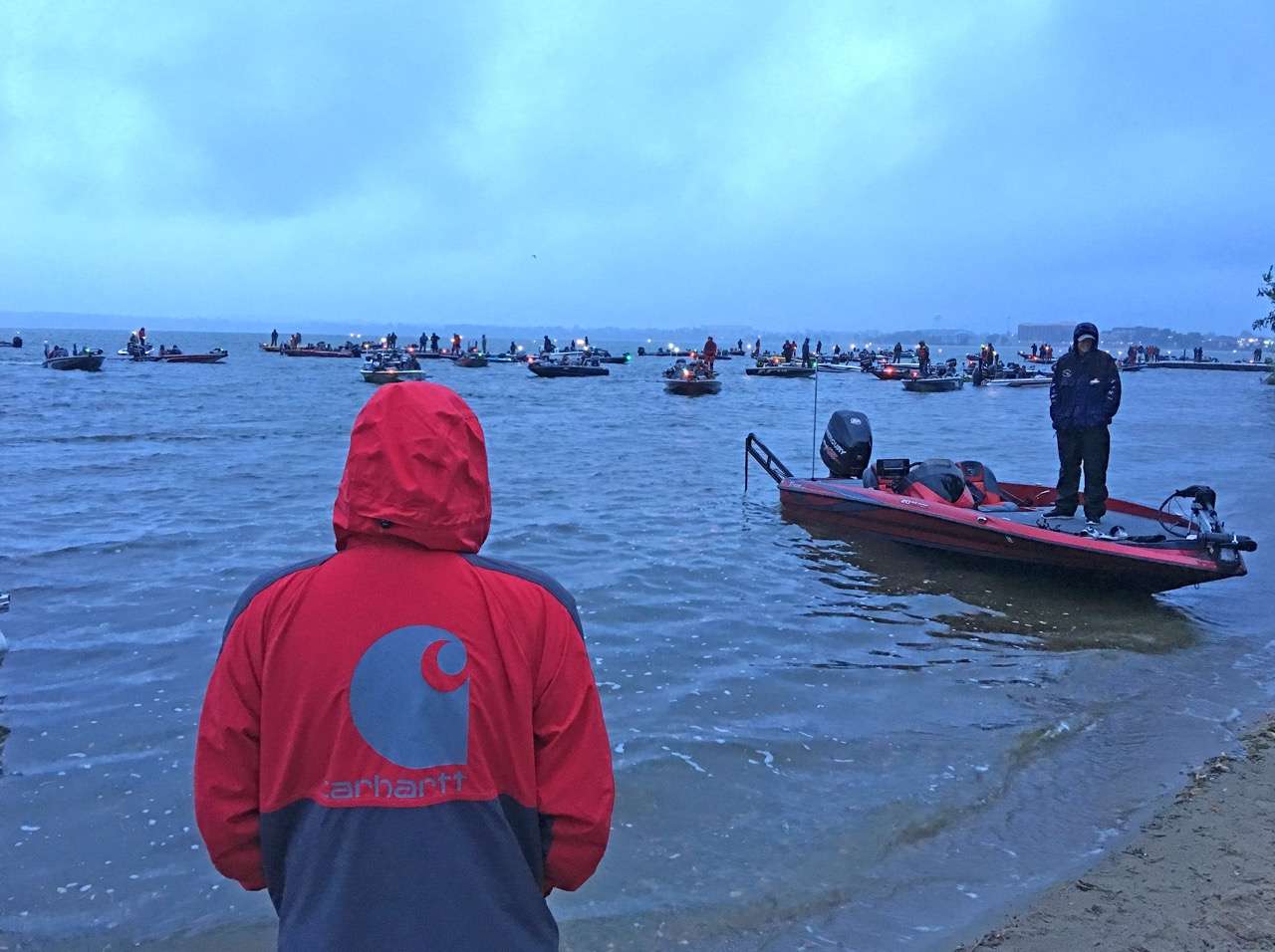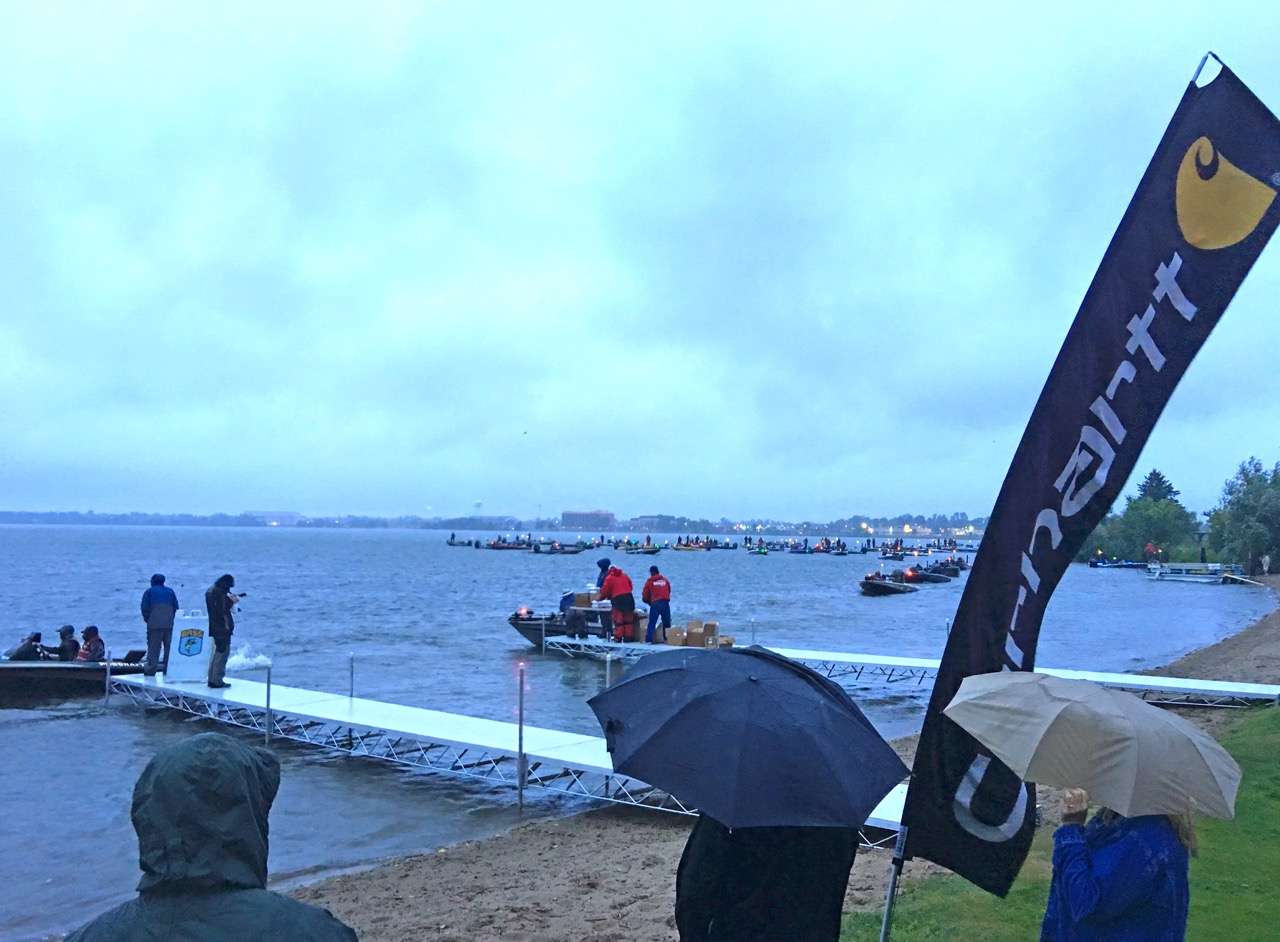
As competition began Thursday morning at the Carhartt Bassmaster College National Championship presented by Bass Pro Shops, parents and girlfriends walked gently on wet sand where college anglers beached their bass boats prior to takeoff. Umbrellas went up. And puddles formed on the lawn surrounding sponsor exhibit tents at Paul Bunyan Park on the shores of Lake Bemidji.
After three tough days of practice, marked by light winds and mostly sunny skies, anglers grumbled about crowded fishing, an over abundance of northern pike and the struggle to catch a five-bass limit.
Change is good, so these best-of-the-best college anglers are welcoming the chilly 59-degree air, rain and steady cool north wind.
Spencer Lambert, a junior majoring in agriculture business at the University of Louisiana Monroe. – “I’m hoping the rain and clouds will make the topwater bite last a lot longer today. Our first day of practice was our best day of practice, but that area is really crowded, so we’re not going to start there. Today is kind of a new day to try to figure things out.”
Hunter McKinley, a senior majoring in advertising at Murray State in Kentucky. – “Yesterday was better with the cloud cover, so I’m really, really, hoping this change in weather is only going to make things better. As long as this north wind doesn’t blow too crazy, we might have a better day today.”
Luke Parlow, a junior majoring in economics at Missouri State. – “I’m kind of welcoming this rain and wind because our practice was so tough that I’m counting on this major weather change to hopefully makes things better.”
Tyler Rivet, a senior majoring in petroleum technology at Nicholls State in Louisiana. – “This rain and wind can’t hurt us because we never really figured things out in practice. But my three favorite lures are a frog, a frog, and a frog – and this is frog fishing kind of weather. If I ever make it to the Bassmaster Elite Series – it’ll be a frog that helps get me there.”
Rivet is right; frogs should feel at home on this soggy first day of competition. And hopefully the largemouth will be better energized by the wind and rainy skies too.


